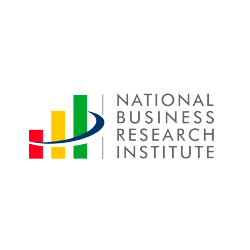Financial Translation Services
Fast, reliable & accurate financial & insurance translations in over 200 languages.

Your financial documents are more than numbers
Financial language spans many types of businesses. But whether you are an insurance company, an investment bank, or run an accounting service, you share one thing in common: precision. A faulty risk assessment calculation or inaccurate reporting can make a merger go wrong.
But this accuracy doesn’t apply just to numbers.
Complying with precise financial terminology and strictly defined language conventions is part of it, too. And financial jargon doesn’t always overlap from language to language.
LingPerfect financial translation serivces: where language expertise meets quality and technology
All our linguists are trained and certified professionals with minimum 6 years of experience with financial translations. Many of them specialize in domain-specific fields: banking, insurance, and accounting.
But trusting your translations to an expert is not enough. You can only achieve consistency and accuracy in your financial translations by following a rigorous quality assurance process. And that is something only a professional financial translation services provider can guarantee.

550+ Professional financial translators
Every industry has its own specificities. That's why we always pair you with expert financial translators with specific domain-related experience.

ISO 9001:2015 certified quality assurance processes
Our rigorous QA processes and KPIs make sure your translated documents are error-free and adhere to your terminology and tone of voice.

Advanced technology for faster turnaround times
We employ the most advanced translation technology tools that help with time-sensitive translation tasks–without cutting corners on quality & accuracy.
All your financial documentation taken care of
- Annual reports
- Audit reports translation
- Balance sheets
- Bank statements
- Financial contracts & affidavits
- Financial statements
- Fintech translations
- Income statements
- Investor relations documents
- IPOs
- Press releases
- Prospectuses & sales material
- RFPs
- Shareholder communications
- Tax reports
Our clients say




Multilingual Financial Services
With LingPerfect, you get native speakers with expert-level knowledge of the financial, banking, and insurance industries who can quickly and accurately translate the material needed for your specific project.
Other languages:
🇨🇳 Audit report translation in Mandarin Chinese
🇮🇳 RFP translation in Hindi
🌎 explore over 200 other languages we translate
3 easy steps to fast & reliable financial document translations
We love languages. But we know that for you, financial translation assignments are always an extra on your already busy to-do list.
So we made it as easy as possible to get a quote for your translation and get it kick-started:
1: Upload your documents
Don’t worry about the document format. We’ll take care of any file conversions, if necessary.
2: Review & approve
Check the terms and the deadlines. Click OK and your translation project is kicked off
3: Your financial translations are ready!
Download your translations right from our portal. No more pieces being lost in email back-and-forths.

Speak to our financial translation department today

Consumer finance & retail banking translations
Consumer finance has been subject to a sweeping overhaul in the last few years. Payment platforms like PayPal, Venmo, AliPay, and others have made it their mission to bring finance closer to people. How? One of the ways has been to ease access by simplifying language. This unraveling of institutionalized financial jargon has brought along major shifts in how regular brick-and-mortar financial institutions speak to their customers, too. After all, the language inside your online banking platform has to be crisp, concise, and user-friendly. Because your customers expect it to be.
Translating for corporate finance followed suit, of course. Today, expert translators in the B2C financial translation services sector have to wear two hats: they have to comply with standards of financial terminology translation but at the same time, recreate the content so that it is void of rigid and archaic formulas so emblematic of the financial industry.
Insurance Translation Services
People often consider insurance documents to be a homogenous set of content. But at LingPerfect, we believe that is the wrong way of looking at insurance.
Forward-looking insurance companies have understood that, same as consumer finance, their client-facing documents and collateral have to receive a major upgrade if they want to retain their clients and expand their business internationally. In our era, customers are not willing to read through obscure jargon-strewn terms and conditions. Keep it simple, and people will trust you.
But the insurance industry also has another face. The regulatory aspect, the financial and shareholder reporting are all types of documents that remain firmly rooted in the traditional financial terminology. The language here continues to be highly formulaic. So any trespassing or creative liberty taken by the translator would be frowned upon.

Financial translation services - what makes them so specific?

Numbers are objective. Language, albeit used in a numbers industry, is anything but. This notion itself can give you a gist of what makes financial documents so specific – and so challenging to translate.
1. Financial regulations differ from country to country
And besides country-level regulations, there are others, too. For instance, the European Union has tried to standardize the reporting by implementing the IFRS, which stands for International Financial Reporting Standards. But these rules apply mostly to large corporations. Small and medium enterprises are left out of the scope.
The US has a different set of rules covered under GAAP (Generally Accepted Accounting Principles).
An apt linguist will know the difference between the two. An even sharper financial translator will know that GAAP and IFRS actually can’t be compared. The former is a rules-based system whereas the latter is a principles-based system, leaving much more room for interpretation which in turn calls for a much wider financial disclosure.
2. Same official language, different financial language
Same as it goes for the ubiquitous “booth” vs “trunk”, there are nuances in financial terminology used in two countries that share the same official language.
It is important that the financial translator knows the nuts and bolts of the language locale and the peculiarities of its financial terms.
3. Terminology must be 100% consistent
Using synonyms in financial translations is highly unwelcome. It may confuse the reader and give space to misinterpretation, which could lead to serious issues.
The only way to achieve this uniformity is if your language provider uses modern CAT tools which create translation memories and termbases.


4. Confidentiality is almost always required
Financial documents almost always contain sensitive data:
- – Financial results disclosures
- – Sensitive data from medical records used in insurance claims
- – Personal information from an individual’s financial statements
Your financial translation services provider should to follow strict procedures that prevent information from being leaked out into the world. One of the measures which we constantly implement at LingPerfect is that any translation containing sensitive information can only be stored on our own servers and translators cannot use cloud-based solutions to process the documents.










